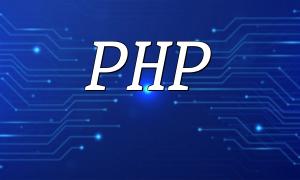Since its inception in 1994, PHP has become one of the most widely used server-side scripting languages worldwide. As PHP developers, we often focus on syntax and library usage but tend to overlook the importance of deeply understanding PHP's internal mechanisms and core. Grasping the core development principles of PHP7 is crucial for improving development efficiency and code quality.
Mastering PHP7's underlying mechanisms helps developers write more efficient code. Understanding details like the copy-on-write mechanism, variable scope, and memory management in the kernel allows avoiding inefficient programming patterns and boosts code execution speed and resource utilization. For instance, PHP strings are immutable; each concatenation triggers a copy operation, and as the number of concatenations grows, performance costs increase significantly. Recognizing this helps optimize code to minimize unnecessary copies and enhance execution efficiency.
The following example compares ordinary string concatenation with an array-based approach that improves performance:
<?php
$start = microtime(true);
// Ordinary string concatenation
$str = '';
for ($i = 0; $i < 10000; $i++) {
$str .= 'a';
}
echo $str;
$end = microtime(true);
$execution_time = ($end - $start);
echo "Execution time: {$execution_time} seconds";
?>This code creates a new string and copies the old one on each iteration, which is inefficient. Using an array to concatenate reduces copy overhead significantly:
<?php
$start = microtime(true);
// Using array concatenation
$arr = array();
for ($i = 0; $i < 10000; $i++) {
$arr[] = 'a';
}
$str = implode('', $arr);
echo $str;
$end = microtime(true);
$execution_time = ($end - $start);
echo "Execution time: {$execution_time} seconds";
?>This approach stores concatenated parts in an array and converts it to a string at the end, greatly enhancing performance.
Understanding PHP7 core principles also aids in diagnosing and solving complex internal issues. When encountering memory errors or unexpected behaviors, knowledge of PHP's memory management and limits can quickly guide troubleshooting. For example, PHP’s default memory limit is usually 128M; large data operations might cause memory exhaustion. Adjusting the memory_limit setting in php.ini can resolve such issues.
<?php
// Attempt to create a very large array, which may cause memory exhaustion
$arr = array();
for ($i = 0; $i < 100000000; $i++) {
$arr[] = 'a';
}
?>Knowing these constraints and how to configure them helps developers handle high-load scenarios more effectively.
Deep knowledge of PHP7 internals enables the development of advanced features and custom extensions. The PHP kernel provides rich APIs and extension mechanisms that allow writing custom functions in C, greatly increasing PHP’s flexibility and functionality.
#include <php.h>
#include <stdio.h>
PHP_FUNCTION(hello_world) {
printf("Hello, World!\n");
}
zend_function_entry my_ext_functions[] = {
PHP_FE(hello_world, NULL)
{NULL, NULL, NULL}
};
zend_module_entry my_ext_module_entry = {
STANDARD_MODULE_HEADER,
"my_ext",
my_ext_functions,
NULL,
NULL,
NULL,
NULL,
NULL,
NULL,
PHP_MY_EXT_VERSION,
STANDARD_MODULE_PROPERTIES
};
ZEND_GET_MODULE(my_ext)As shown, through the extension mechanism, developers can add custom functions to PHP, meeting specialized business needs and expanding capabilities.
Understanding PHP7 core development principles is vital for improving code efficiency, troubleshooting complex issues, and enabling advanced functionality. Deep kernel knowledge empowers developers to optimize performance, enhance problem-solving skills, and create powerful extensions. We hope this article provides useful insights for PHP developers to better master the PHP core and elevate their overall development skills.









